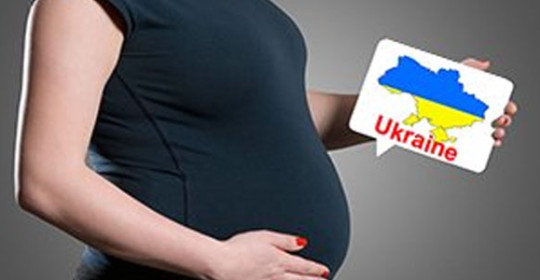
Law on surrogacy in Ukraine
In the sphere of surrogacy, Ukrainian legislators have proven to be far more progressive than many of their European colleagues. Today, Ukraine is one of the very few surrogacy friendly countries in Europe. Unlike other nations that limit or even ban surrogacy, in Ukraine the intended parents of child are considered to be biological parents from the moment of conception, and they are specifically named as biological parents in the birth certificate without any mentioning of surrogate mother.
Importantly, the surrogate cannot legally keep the child after the birth. On the contrary: the child is considered to legally belong to the prospective parents from the very moment conception. In fact, in the legal history of Ukraine, there has not been a single reported case of a disputed custody claim arising over a surrogate parenting arrangement or the validity of a surrogacy agreement.
So, first of all, it is worth mentioning that surrogacy in Ukraine is legal over the whole territory of the country.
In Ukraine, juridical aspects of surrogacy are regulated by the following legislative acts:
- Family code of Ukraine;
- Ukrainian Ministry of Justice act on “alterations to civil registration regulations in Ukraine” № 1154/5 from 22.11.2007;
- Ukrainian Ministry of Health order “on approval of reproductive technologies appliance” № 771 from 23 December 2008.
By paragraph 10 article 3 of Ukrainian Ministry of Justice act from 22.11.2007 № 1154/5 procedure for the children registration is established, meaning children who were born with the help of reproductive programs: “In case a baby is born by a woman, who was implanted an embryo conceived by a married couple, registration of birth is carried out upon application of married couple who consented implantation. In this case concurrently with the document, avowing birth of a child by this woman, verified by notary written consent on recording married couple to be parents is applied”.
Rights of birth parents are protected by law. Corresponding, children rights are protected, who are born with ART (assisted reproductive technology): genetic (biological) relationship with mother and father is considered.
Agreements
Various agreements have to be signed between the parties, including contracts with the medical institution responsible for insemination and further medical surveillance, the surrogate mother and surrogacy agency (if any). The surrogacy agreement must be in writing and signed before a notary prior to the embryo transfer. At a bare minimum, the following issues should be addressed: surrogate mother’s health status; conditions which surrogate mother should observe; medical institution where the procedure will be performed; surrogate mother’s remuneration, additional expenses, timing of payment(s); expenses connected with impregnation, pregnancy, act of delivery and registration of child; procedure of child transfer and registration; any force majeure provisions, including the delivery of handicapped child, delivery of more than one child, delivery of dead child, delivery complications resulting in surrogate mother’s future infertility; confidentiality provisions and non-disclosure of information to the child or any third party, etc.
An agreement with the medical institution deals primarily with the medical institution’s services, including responsibility for choice of surrogate mother (if applicable) and her full medical examination, obligation to carry out all procedures in accordance with the methods approved by the Health Ministry of Ukraine and intended (genetic) parents’ requirements, the terms and conditions of medical observation during the pregnancy, payment structure, confidentiality and non-disclosure of information to the child or any third party, among others. Some medical institutions request that intended parents “shall not to submit any legal claims against the institution for any reason,” which clearly contradicts Article 3 of the Civil Procedural Code of Ukraine, namely, the individual’s right to defend his or her interests in court.
Since the Ukrainian Family Code presumes that genetic parents of the child born by a surrogacy will be a married couple, a Ukrainian notary will need to see a marriage certificate of the genetic parents, notarized and apostilled (at your home state department), translated and translation must be notarized.


